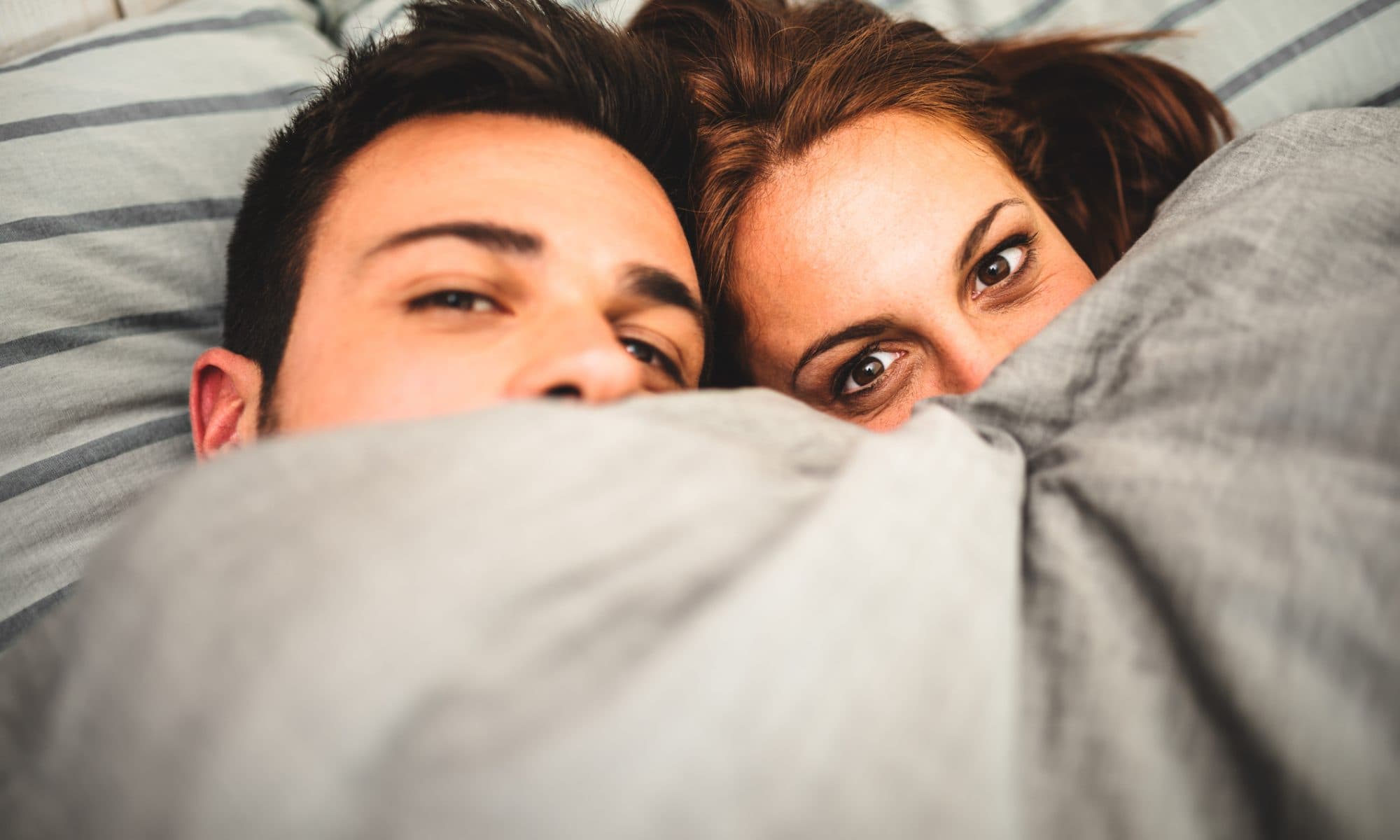Chlamydia Infection – Common Questions Answered

Content by

Last Updated
Table of Contents
- What is Chlamydia?
- How Do You Get Chlamydia?
- What are Chlamydia Symptoms in Women?
- What are Chlamydia Symptoms in Men?
- What Happens if Chlamydia is Left Untreated?
- Is Chlamydia Curable?
- What is The Treatment for Chlamydia?
- What if I Forget to Take a Dose During Treatment?
- What Should I Do if I Vomit After Taking Chlamydia Treatment?
- What is the Best Treatment for Chlamydia Infection?
- How Long Does it Take to Cure Chlamydia?
- How Long Does it Take for Symptoms to Appear?
- My Symptoms Have Disappeared. Does This Mean I'm Cured?
- I Have No Symptoms, Could I Have Chlamydia?
- Can Chlamydia Go Away on its Own?
- Do I Need to Tell my Sexual Partners if I Have Chlamydia?
- How Can I Get Tested for Chlamydia?
- Where Can I Get Tested?
- Do I Need to Retest for Chlamydia?
- How Often Should I Get Tested?
- What Can I do to Lower the Risks of Getting Chlamydia?
- What Should I Do If I'm Pregnant and Have Chlamydia?
- Can You Get Chlamydia From Swimming Pools or Sharing Toilet Seats and Towels?
- Final Thoughts
Looking for information on Chlamydia including symptoms, treatments, and transmission? Understanding this common, often asymptomatic STI is crucial for effective prevention and management. Below we offer comprehensive insights to help you stay informed and proactive about your sexual health. Explore key details on tackling Chlamydia with us.
What is Chlamydia?
Chlamydia is a common Sexually Transmitted Infection (STI) that is caused by a type of bacteria, known as Chlamydia Trachomatis. It’s the most common STI that is spread unknowingly, as it is often symptom-free.
How Do You Get Chlamydia?
You can catch chlamydia by having unprotected sex with someone who is carrying the bacterial infection, or by coming into contact with their genital fluid (for example genital fluids being ingested or coming into contact with your eyes). You can also get chlamydia by sharing sex toys with an infected person or if your genitals come into contact with an infected individuals, even if there is no penetration. You can also get chlamydia through anal sex and oral sex.
You cannot catch chlamydia from swimming pools, toilet seats, kissing or hugging.
What are Chlamydia Symptoms in Women?
Chlamydia doesn’t usually display any symptoms in women. Only 30% of women experience symptoms, which can include:
- Pain on urination
- Vaginal dscharge
- Lower stomach or pelvic pain
- Painful sex
- Bleeding after sex
- Bleeding from the vagina
What are Chlamydia Symptoms in Men?
Around 50% of men infected experience symptoms, such as:
- Pain on urination
- Discharge from the penis
- Itchy or burning sensation around the urethra area
- Tender testicles
What Happens if Chlamydia is Left Untreated?
Females that that do not treat chlamydia are at risk of developing Pelvic Inflammatory Disease. This disease affects the reproductive system and can cause complications when trying to have a child.
Males that don’t treat chlamydia run the risk of it reaching their testicles, causing them to become swollen and inflamed. Not only is this painful, it can also cause infertility.
Not treating the infection can also cause reactive arthritis, a condition that causes inflammation of your joints, eyes or urethra (the tube that allows urine to pass out from the bladder). This condition can affect both males and females.
Is Chlamydia Curable?
You can cure chlamydia with a short course of antibiotics. Treatment is considered to be extremely effective with a 97% chance of clearing the infection first time round. However, it is important that antibiotics are taken correctly and that you do not miss any doses, in order to ensure the effectiveness of treatment.
What is The Treatment for Chlamydia?
There are currently two antibiotics available to treat chlamydia:
- Doxycyline: This treatment is taken twice daily for 7 days. Research suggests that it is 100% effective in treating chlamydia.
- Azithromycin: This treatment is taken as a single dose only once, to cure the infection. Research suggests that it has a 97% success rate in treating chlamydia. Most people usually prefer this treatment over doxycycline, which needs to be taken two times a day for a week. It also has a lower side-effect profile.
What if I Forget to Take a Dose During Treatment?
If you forget a dose, you should take it as soon as you remember. If it is close to taking your next dose, or you remember when it’s time for your next dose, you should not take two tablets together. It’s unlikely that missing one dose will have an effect on the outcome of treatment, but you may want to have another test after finishing your treatment course, just to be sure.
What Should I Do if I Vomit After Taking Chlamydia Treatment?
Partial or no absorption of one tablet is unlikely to impact your treatment, and you should continue with your treatment course as prescribed. If you find that a particular antibiotic is making you feel nauseas, try taking it after food and avoid alcohol for the duration of your treatment. If you vomit more than once, you should speak to your doctor or pharmacist about trying an alternative medication.
What is the Best Treatment for Chlamydia Infection?
Azithromycin and Doxycycline are both proven and effective antibiotics, which have been used for many years to treat chlamydia. The medication that your doctor prescribes you will depend upon several factors such as your medical status (e.g. allergies, pregnancy, current medication you may be taking). Compliance issues may also be taken into consideration, for example, how likely you are to remember to take your medication. Price may also be a determining factor, which isn’t an issue considering both antibiotics have an extremely high success rate.
How Long Does it Take to Cure Chlamydia?
The antibiotics start to take effect from the moment they are taken. The all clear is usually given 7 days after you take your last tablet. This is because the antibiotics may still be working to clear the infection during this period, which is why sexual activity should be avoided until 7 days have passed since treatment has been completed.
How Long Does it Take for Symptoms to Appear?
A majority of people will not experience any symptoms, which is the main reason why chlamydia is so common. Those that do will usually experience symptoms anywhere between 7-21 days after they’ve caught the infection. Occasionally, some people may experience symptoms months later, meaning they have had chlamydia without realising.
My Symptoms Have Disappeared. Does This Mean I'm Cured?
Although chlamydia symptoms may have gone away, you may still be carrying the infection. The symptoms that you experience may not necessarily have been chlamydia, and you should carry out an STD test to find out whether or not you are infected. If you have engaged in unprotected sexual activity with someone who has a recent positive test, you should start treatment regardless.
I Have No Symptoms, Could I Have Chlamydia?
Around 5 in 10 men and 7 in 10 women infected will not present with any symptoms. If you have been involved in any unprotected sexual activity with someone, and are unsure if they’re infected, you should have an STD test.
Can Chlamydia Go Away on its Own?
Unlike the common cold, it’s very rare that the immune system is able to deal with chlamydia. You should get treatment as soon as possible. Untreated chlamydia can lead to further health problems and complications such as the possibility of infertility.
Do I Need to Tell my Sexual Partners if I Have Chlamydia?
It’s important to let your partners know, so that they can be treated and avoid re-infecting you, or anyone else with the disease.
How Can I Get Tested for Chlamydia?
Testing for chlamydia involves providing a urine sample that is sent for analysis in the laboratory. Results usually take a few days to come back.
Where Can I Get Tested?
There are a number of ways to test for chlamydia. You can either visit a sexual health clinic, your local GUM clinic, or order a test kit online.
Do I Need to Retest for Chlamydia?
Retesting after treatment is not usually necessary, as treatment is considered to be very effective. However, you should retest if:
- You are pregnant
- You have had sexual contact whilst taking treatment and within the 7 day period after treatment
- Your symptoms have not gone away
- You are HIV positive
- It will give you peace of mind (there is no harm in retesting)
How Often Should I Get Tested?
You should take a test every time you change sexual partner, or after you share sex toys. Those under the age of 25 who are sexually active are recommended to have an STI test every 3 months.
What Can I do to Lower the Risks of Getting Chlamydia?
- Use barrier methods such as condoms and dams
- Avoid sharing sex toys, or wash them thoroughly
- Have regular STD tests
What Should I Do If I'm Pregnant and Have Chlamydia?
It’s important to get treated for Chlamydia as soon as possible if you are a pregnant woman. This is because there is a chance you can pass the infection onto your child during birth. This can cause your child to develop health complications such as an eye infection or a more serious health problem such as pneumonia. Chlamydia can also increase the chances of complications such as premature birth, miscarriage and still birth. You should visit your GP to discuss treatment options. You should retest after treatment, and continue to get tested frequently if you are pregnant and have regular sexual partners.
Can You Get Chlamydia From Swimming Pools or Sharing Toilet Seats and Towels?
Chlamydia Trachomatis, the bacteria responsible for this disease, is not able to survive outside the human body, therefore it is not possible to contract chlamydia from sharing toilet seats, bedding, clothes or towels. You can only catch the infection when genital fluid comes into direct contact with bodily tissue such as the eye, urethra or cervix. The same principal applies to swimming pools as the bacteria is unable to survive in hostile conditions where chlorine is present.
Final Thoughts
Understanding chlamydia is key to prevention and management. Knowing its symptoms, transmission, and the benefits of prompt treatment can help to mitigate its effects. If you suspect you or a partner is at risk of infection, seek medical advice immediately. With proper knowledge and precautions, chlamydia is both preventable and treatable.
Whilst all of our content is written and reviewed by healthcare professionals, it is not intended to be substituted for or used as medical advice. If you have any questions or concerns about your health, please speak to your doctor.
